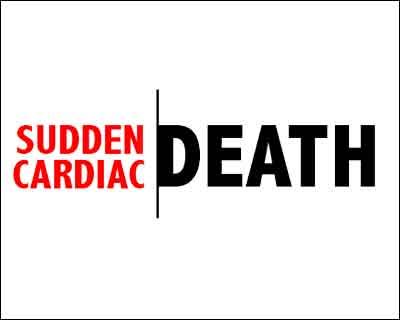- Home
- Editorial
- News
- Practice Guidelines
- Anesthesiology Guidelines
- Cancer Guidelines
- Cardiac Sciences Guidelines
- Critical Care Guidelines
- Dentistry Guidelines
- Dermatology Guidelines
- Diabetes and Endo Guidelines
- Diagnostics Guidelines
- ENT Guidelines
- Featured Practice Guidelines
- Gastroenterology Guidelines
- Geriatrics Guidelines
- Medicine Guidelines
- Nephrology Guidelines
- Neurosciences Guidelines
- Obs and Gynae Guidelines
- Ophthalmology Guidelines
- Orthopaedics Guidelines
- Paediatrics Guidelines
- Psychiatry Guidelines
- Pulmonology Guidelines
- Radiology Guidelines
- Surgery Guidelines
- Urology Guidelines
Drugs THAT prevent sudden cardiac death in heart failure -Check it out

Which are the drugs THAT prevent sudden cardiac death in patients with reduced ejection fraction heart failure, has been specified by researchers after a review.
Antialdosterone agents, beta-blockers, and combined ARBs (angiotensin receptor blockers) /neprilysin inhibitors are effective for the prevention of sudden cardiac death (SCD) in the patients with reduced ejection fraction (HFrEF) and Heart Failure, according to a review published in the journal BMJ Open.
Muaamar Al-Gobari, Lausanne University Hospital (CHUV), Lausanne, Switzerland, and colleagues conducted the study to summarise and synthesize the current evidence regarding the effectiveness of drug interventions to prevent SCD and all-cause mortality in patients with Heart Failure and reduced ejection fraction (HFrEF).
For the study, investigators searched multiple databases for studies in which the effectiveness of various pharmacologic interventions was evaluated in patients with HFrEF. They identified 41 reviews that included treatments such as beta-blockers, angiotensin-converting enzyme inhibitors (ACE-i), ARBs, anti-aldosterones or mineralocorticoid-receptor antagonists, amiodarone, other antiarrhythmics, combined ARB/neprilysin inhibitors, statins, and fish oil supplements.
Also Read: 3D Virtual Heart to Predict Sudden Cardiac Death Risk
Key Findings:
- Beta-blockers (odds ratio [OR] 0.69 for SCD; 0.67 for all-cause mortality), anti-aldosterones (risk ratio [RR] 0.81 for SCD; 0.81 for all-cause mortality), and combined ARB/neprilysin inhibitors (RR 0.81 for SCD; 0.86 for all-cause mortality) were effective in preventing SCD and all-cause mortality.
- ACE-i significantly reduced all-cause mortality but not SCD events (OR 0.91).
- Neither ARBs nor statins appeared to be effective for reducing SCD or all-cause mortality.
- The evidence for the efficacy of omega-3 fatty acids and antiarrhythmics was considered uncertain due to either conflicting or inconclusive evidence.
- Amiodarone demonstrated a significant reduction in SCD events but not in all-cause mortality in newer studies, but a decline in both endpoints in older reviews.
"This comprehensive overview of systematic reviews confirms that beta-blockers, antialdosterone agents, and combined ARB/neprilysin inhibitors are effective on SCD prevention but not ACE-i or ARBs," concluded the authors. "In patients with high risk of SCD, an alternative therapeutic strategy should be explored in future research."
For more information follow the link: http://dx.doi.org/10.1136/bmjopen-2017-021108

Disclaimer: This site is primarily intended for healthcare professionals. Any content/information on this website does not replace the advice of medical and/or health professionals and should not be construed as medical/diagnostic advice/endorsement or prescription. Use of this site is subject to our terms of use, privacy policy, advertisement policy. © 2020 Minerva Medical Treatment Pvt Ltd